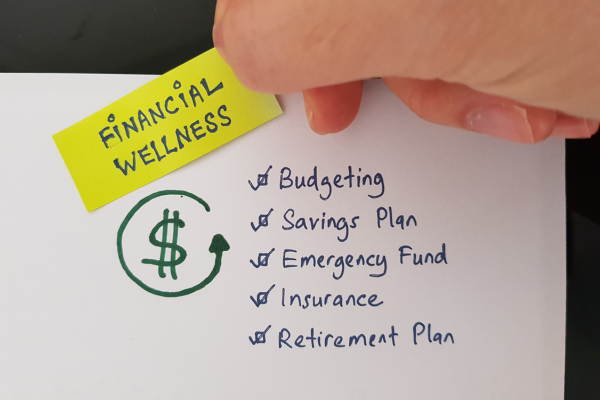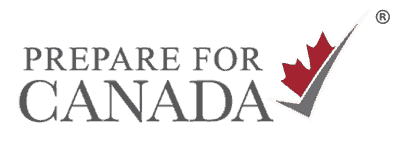
Financial literacy skills are vital for Canadians to manage their money wisely. It helps people to reach their financial goals, prepare for emergencies, and avoid making costly mistakes. And, financial literacy is vital for newcomers, especially when first arriving in Canada. For many newcomers, it can be a challenge to quickly find a job in your profession and at the level you worked in a previous role. You may have to stretch your finances and budget, and this can contribute to financial stress. It’s also important to avoid taking on debt when you first arrive in Canada. This is where financial literacy can help you to preserve and save money for your future.
Each November, the Financial Consumer Agency of Canada recognizes Financial Literacy Month to help Canadians build skills to navigate financial decisions in challenging times. As a newcomer, navigating Canada’s financial system can be complex and present many hurdles. For example, accessing credit can be a challenge if you have a limited credit history. And, this can make it difficult to build a financial foundation to achieve success. But with strong financial literacy skills, you’ll be in better position to make smart decisions about your finances in Canada.
About Financial Literacy in Canada
While financial literacy is important for individuals, it’s also helpful to the Canadian economy. So an important objective of Financial Literacy Month is to raise the financial skills of all Canadians.
With financial literacy skills, people are better able to:
- Manage finances
- Reduce financial stress
- Make the right financial choices, and
- Enhance financial health.
Advertisement:
Importantly, financial literacy can set you up for a comfortable retirement without worrying about your finances.
To learn more about Financial Literacy Month, click here.
What is Financial Literacy?
Simply put, financial literacy is the ability to understand and use financial skills such as:
- Managing your budget
- Decreasing debt, and
- Saving and investing for your future.
Financial literacy includes having the skills and knowledge to make informed financial decisions and demonstrating actions, that lead to positive financial outcomes. Managing your debt and saving for future goals
Related Posts:
Tips to Maintain a Good Credit Report in Canada
Advertisement:
Money Management Tips for Newcomers to Canada
5 Mistakes Newcomers Make with Credit Cards
Cost-Savings Ideas: 22 Practical Tips for Newcomers
Holiday Season Online Shopping Scams Newcomers Can Avoid
Banking and Finance in Canada: Your First Steps
Why Financial Literacy is Important for Newcomers
Financial literacy is more important than ever because of the increasingly complicated financial world. With the increased cost of living and rapid interest rate increases over the past couple of years, taking stock of your finances in Canada is vital. Carefully managing your money can help you prepare for these situations and limit financial challenges. It’s important to carefully monitor your finances to achieve financial wellness.
| FINANCIAL ACTION STEPS | BENEFITS |
|---|---|
| Review your budget | A spending plan that shows your income and expenses is an effective way to manage your day-to-day finances. |
| Consult a financial advisor at your bank | A financial advisor can review your financial situation and suggest where you can improve your financial health. |
| Get a copy of your credit report | Your credit report gives you a picture of your financial health from a lender’s point of view. Your credit report can also check for signs of identity theft. |
In addition, research shows that 6 out of 10 Canadians don’t know how much money they should save for their retirement. This can result in:
- Overspending
- Acquiring debt, and
- Reducing savings.
So financial literacy can help newcomers to successfully prepare for their retirement years.
Smart Financial Literacy Actions

Make a Budget
Making and sticking to a budget is the most important thing you can do when it comes to financial literacy. A monthly budget will help you determine how much you can realistically spend on expenses such as:
- Rent
- Insurance
- Utilities
- Home furnishings
- Food
- Clothing
- Entertainment, and
- Discretionary expenses.
Budgeting is a crucial skill that will prevent you from overspending and ensure you save each month. Not only will you be able to spend your money wisely and with 100% control over how it’s spent, but you will also have money in your savings account.
Budgeting lets you keep track of your financial goals. And, you’ll be surprised how much more money you will have with the same paycheck to invest and pay off debt.
Related Post:
Apply the 50/30/20 Budget Rule
The 50-30-20 Budget Rule has become a widely accepted way of dividing your paycheck. This budget rule is a good way to spend your earnings and have enough savings at the end of the month.
Of course, budgeting will be different for every family but your budget should look something like this:
- 50% of your paycheck for fixed expenses (rent, insurance, bills, etc.)
- 30% for entertainment and other wants, and
- 20% should go towards savings, investing, or paying off debt.
Keep in mind that not every family shares the same circumstances and your financial condition will change over time. So it may be necessary to adjust your budget from time to time. For example, if you earn more than you need, maybe 30% of your paycheck can go to savings and only 40% will be used up for fixed expenses.
Conversely, someone who earns less than an average person might have to cut entertainment costs to 20% to have enough money to meet their fixed expenses.
To create your budget, you can start with this budget planner from the Financial Consumer Agency of Canada.
Build an Emergency Fund
Building an emergency fund is another wise financial literacy activity. Emergency funds are similar to savings except you set aside funds specifically for a financial crisis such as a job loss. So emergency funds need to be fluid and easy to access.
A strong emergency fund should have enough money to cover expenses for three to six months in case you lose your job or have a money shortfall. If your monthly salary is $5,000, you should probably have at least $15,000 in your emergency fund. Emergency funds are important because you don’t know what the future has in store for you.
Be Aware of Financial Fraud and Scams
Financial fraud and scams are now more advanced than ever due to the internet and there is no such thing as being too careful when it comes to your finances. One hasty decision can make you lose thousands of dollars, which is exactly what scammers will try to do. They will try to put you into a panicked condition and then tell you to pay them.
You can receive scam messages through email, mail in your mailbox, phone calls, and text messages that are pretending to be Canada Revenue Agency (CRA) employees. Right off the bat, if you receive a text message, you should know it is fake because the CRA never sends any text messages.
It is possible you will receive either a phone call, email, or mail in your mailbox from the CRA but even then there are ways to figure out if it is a legitimate call from the CRA or a scam. First of all, the CRA will never ask for immediate online payment through an e-transfer or any other currency such as bitcoin, or gift cards. If you get any type of message from the CRA demanding immediate payment, it is a scam.
The CRA Will Never:
- use aggressive language
- threaten to arrest you
- threaten to send the police.
Scammers will try to make you panic by threatening you and demanding you to make an immediate online payment.
This is a typical scam that many people fall for. If you get such a message from the CRA it is definitely a financial scam. For newcomers, this can create panic and anxiety if you are unaware that this activity is not legal.
To learn more about how the CRA might contact you, how to recognize if it’s a scam, and what to do if you think you have been scammed, click here.
Building your financial literacy skills is a smart way to reduce stress, save for your future, and plan for your comfortable retirement. With financial literacy month in Canada, you can build your skills and knowledge to make informed financial decisions.
For more information about your financial first steps in Canada, visit our banking in Canada resource page. Get the essential information you need to manage your finances in Canada!

My name is Zain Usmani and I am a freelance content writer who currently resides in Mississauga, Ontario. I immigrated from Pakistan to Canada 5 years ago and have lived in many cities ever since. I have lived in Calgary AB, Edmonton AB, Regina SK, London ON, and Mississauga ON, while visiting over 40 Canadian cities and towns. I have a great passion for writing and I love helping people through it.


